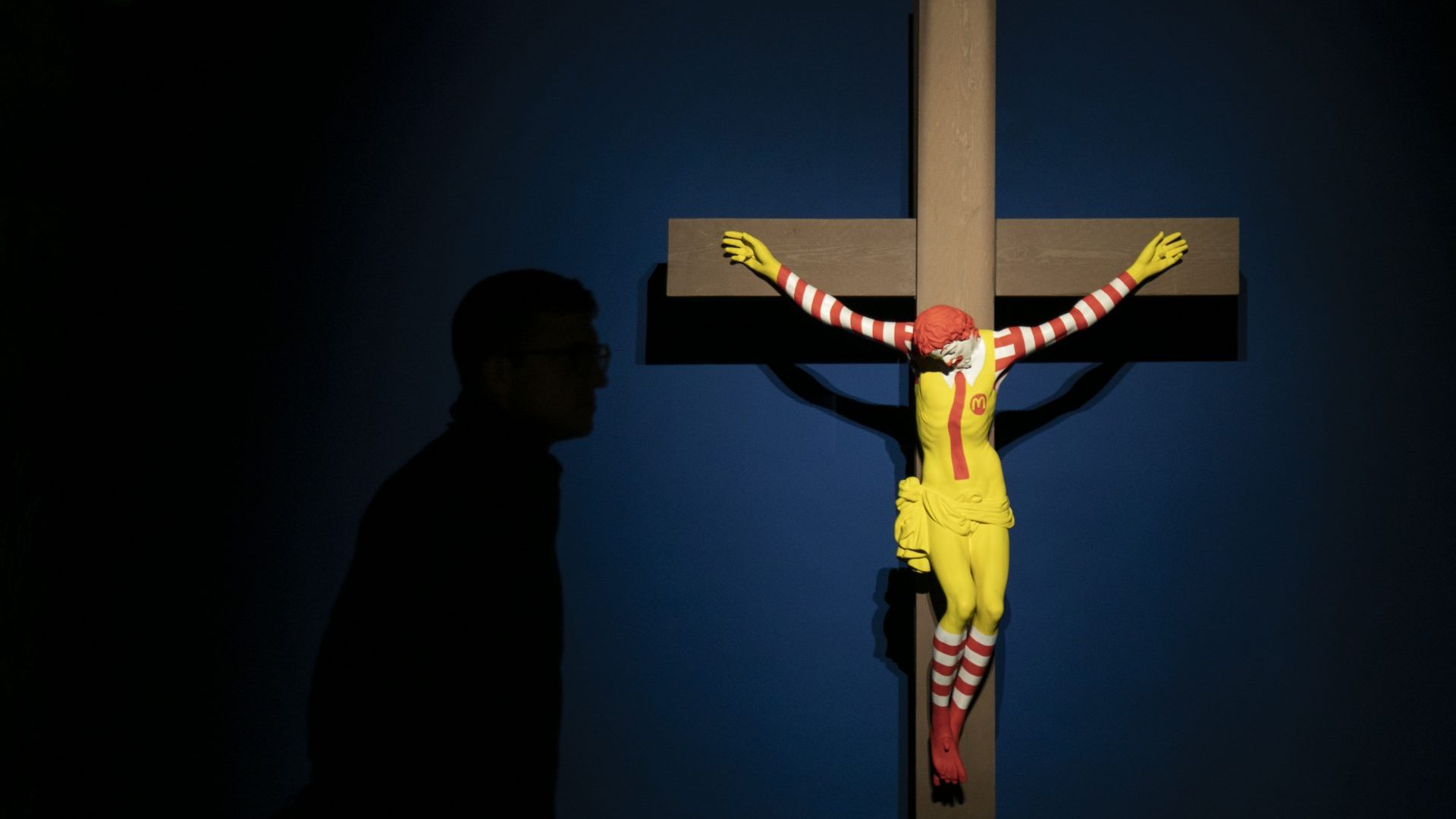Do you think the English language exists? You do, don’t you? That’s quite odd because, according to Bernard Cerquiglini, it doesn’t, and his credentials are probably more impressive than yours.
You see, he used to work at the ministry of education, ran a unit at the ministry of culture, has a doctorate in linguistics, worked for several Prime Ministers, and has written over a dozen books. Have you done all these things? No? Well in that case, can it really be up to you to decide whether English exists or not?
Oh, wait, there’s probably one last thing worth mentioning here. Cerquiglini is French, and the full title of his latest book is The English language doesn’t exist: it’s mispronounced French. Hold on, hold on, put the pitchfork down. He isn’t being entirely serious, and he does have a point.
“It’s a book written from a humorous perspective, it’s deliberately in bad faith, arrogant, chauvinistic and so on,” the author told Agence France Presse. His argument, if you can get past the not-so-gently mocking tone, is that French and English have been mingling with one another for so long that they are more similar than we think.
Words like “cabbage”, “lure” and “wage”, for example, have their roots over the Channel. Similarly, “travel” wouldn’t have existed without “travail”, or “bachelor” without “bachelier”. As Cerquiglini told the AFP in that same interview, 40% of the 15,000 words used by Shakespeare “are of French origin”. So much for the quintessentially English bard.
Still, the linguist’s mischief doesn’t solely target the UK. There is a reason why he wrote the book in French and published it there. As the blurb states, English words like “vintage”, “rave” and “challenge” were all born in France, before eventually getting exported to the other side of the Channel.
It matters because all three of them, and countless others, have now been brought back to France, and treated disdainfully by reactionary forces as uncouth foreign words, encouraging the masses to speak “franglais”. What would their reaction be if they realised that les rosbifs nicked some of those words in the first place?
“This isn’t an invasion, these are French words that have gone for training in England and that are coming back to us,” Cerquiglini told the AFP. It is something that ought to be celebrated: the book’s framing is quite naughty but its argument is both sincere and worth highlighting, especially in these times of division.
Our languages define us but none of them were born in vacuums. English borrowed words from French then French took back an updated version of those words because that is often what happens to people as well. There are many Brits who’ve crossed the Channel, either temporarily or to start a wholly new life, and many French people who’ve done the opposite – this one included.
Our languages get closer to one another as the people mingle, and people mingling ensures that people get closer and closer, as their languages feel more and more familiar. It’s about as virtuous as a cycle can get.
The old men in robes and fancy jackets of the Academie Française may frown at such mixing, believing French to be sacred in its current form, but they are wrong. Languages are alive because the people who use them are, and that is tremendous.
If there is no such thing as English then there is no such thing as French, and that can only be good news. After all, this unholy marriage began centuries ago, back around the time of the Norman conquest in the 11th century.
Soon we will have lived through a whole millennium of this cross-pollinating, complaining about “anglicisms” surely cannot cut it anymore. There is no point shutting that particular stable door; the horse bolted quite some time ago. The only question that remains, really, is whether Bernard Cerquiglini’s book will be translated into English.
It is, according to the introduction which doubles up as a warning to the reader, a book proudly written “in bad faith”. Not all acts of mischief are pointless, however, and Brits could do with this bit of schooling on who their words really belong to. Wait, was it our words or theirs…? Pah, who cares?




